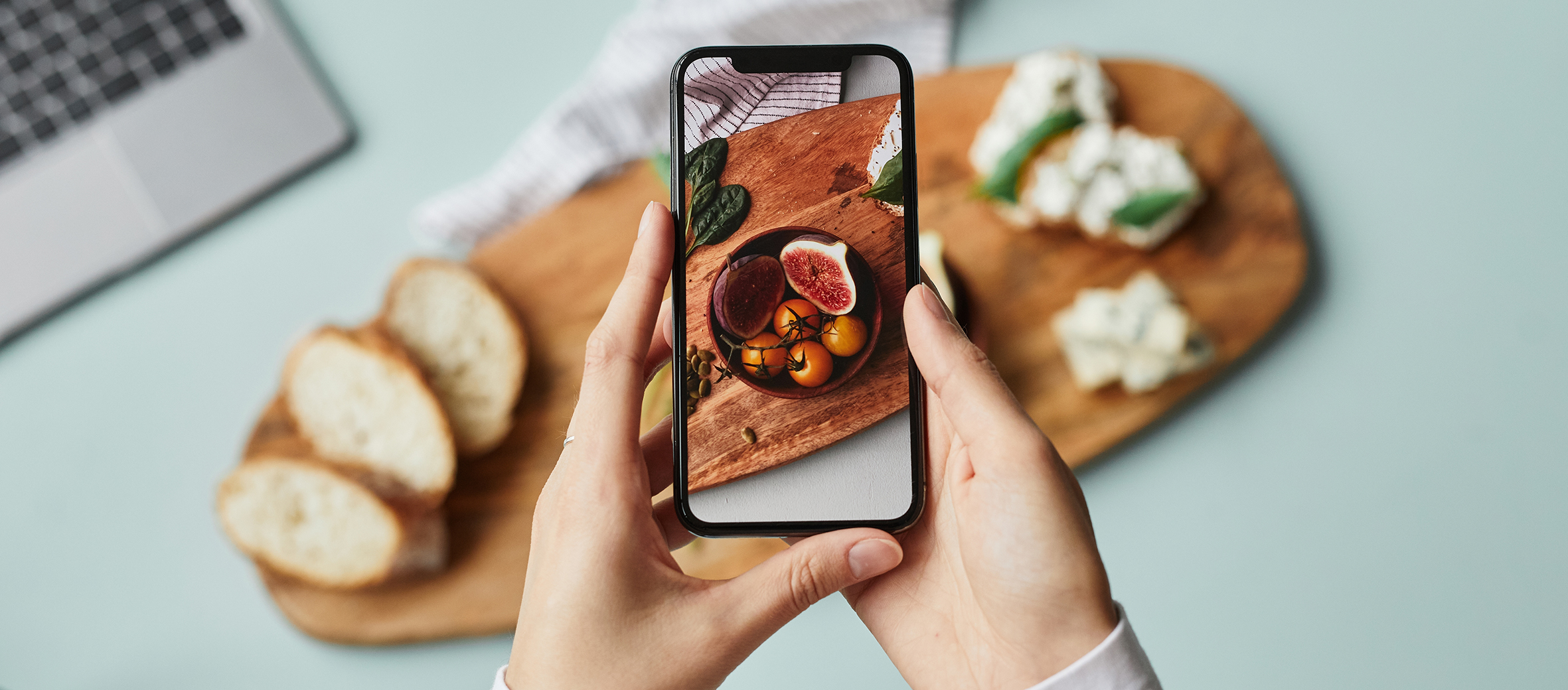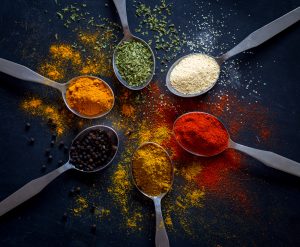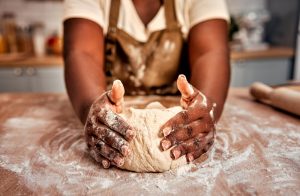A step has fast become a key part of eating a meal, whether you’re eating out or cooked the creation yourself, and that is, taking a picture. Just before you delve in, capturing delicious imagery of your meal to share on socials has become an art form in itself.
During the festive period, Yorkshire wraps, hot chocolates and mince pies are in everyone’s hand, so if you want to show off your latest culinary creation or purchase on Instagram, mastering the art of food photography can make your dishes look as good as they taste. But how do you get the ultimate picture?
With searches for ‘how to take photos of food for Instagram’, up by 200%1, the team at Wren Kitchens have teamed up with expert Georgie Glass, food and product photographer. She has shared the secrets to perfecting your food pictures, so your friends can drool in envy.
Know what food to order
When it comes to the food choice, certain dishes do photograph better than others. “Dishes where the food is flat to the table and a similar height provides symmetry”, says Georgie. “This will make it easier to shoot top-down (flat-lay) from up top. Food such as pizzas, tapas and breakfast dishes like Shakshuka, where the dish is colourful, and flat, work well. Plus, you can stylise the shot with additional side dishes and drinks.”
Don’t fill the frame
‘Negative space’ refers to the area surrounding the main subject in a photograph which is intentionally left unoccupied. “Don’t fill the frame, as this can be used to help add drama to any type of shot, but especially with food images. Allow your dish to breathe into the frame by adding negative or space around it. This is a tried and test way to elevate your food images”, says Georgie.
Diagonal photos draw interest
Strategically placing objects at a diagonal angle makes the photo more interesting. “I love adding flow through compositions to my images, using diagonals to create movement in food images are very effective. By pushing against the usual straight lines, your images will become more creative and unique”, recommends Georgie.
Keep objects and people in frame
Using objects and humanising images helps to bring life to your shot. “For a stylised image, add in props such as wine glasses or candles. Also, by adding in humanised elements such as a set of hands to achieve a cheese-pull on a pizza, or a shoulder or elbow behind your eggs benedict will help elude to how the senses should react”, advises Georgie.
Rule of thirds is vital
Georgie recommends the golden photography rule of thirds, “Make sure you place the most interesting part of your food setup, so it hits one of those crosspoints on the Rule of Thirds, it makes such a difference to your symmetry and it’s very satisfying!”
Lighting tactics
Lighting makes or breaks any photo you take, and if you want to make your food picture drool worthy, natural lighting is key. “Good timing and a neutral backdrop are vital ingredients for optimal lighting”, says Georgie.
Consider the content in which people would enjoy the meal you’re photographing and chose a light that compliments this. For example, for a breakfast shot, seize the moment early in the morning when warm sunlight streams through the windows. If you’re eating out, you can’t predict the lighting. Where possible, chose a well lit table or by a window, or if that’s not possible use an LED light that you attach to your phone.
Consistent if you’re going on grid
If you are posting your food pictures on the grid, you need to keep a consistent theme. “Consistency is key!”, says Georgie. “Ensure all the images you’re uploading are consistently good, but less is more. If you have 10 images for your carousel, but only 4 are sensational, just stick to the 4.”
Darren Watts, Showroom Development Director and Designer at Wren Kitchens comments: “The backdrop of food shots is important to convey the essence of any dish. If you’re making culinary creations at home, visit our kitchens ideas hub for further inspiration.”
For the full photography advice, please visit https://www.wrenkitchens.com/blog/how-to-take-food-photos-for-instagram





